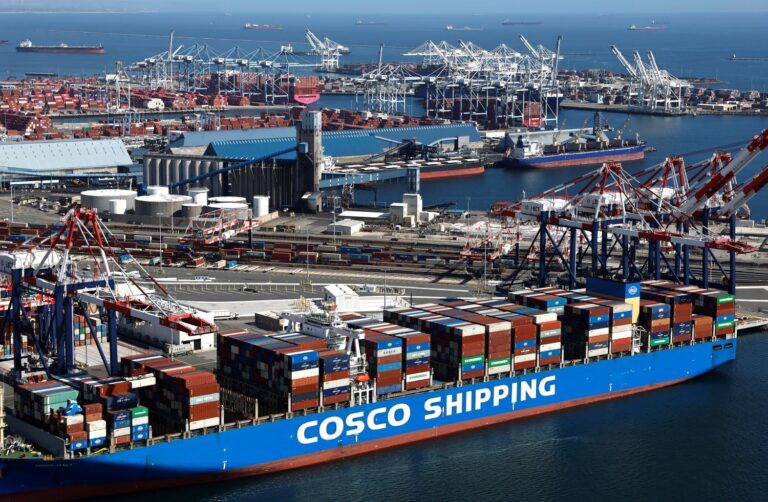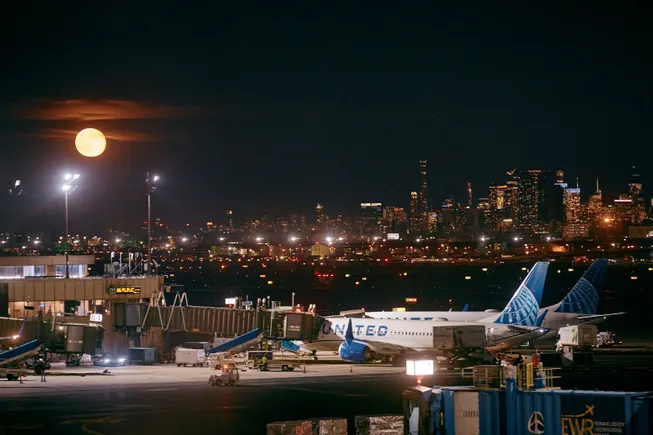
We live in a changing world today.
In the past 50 years, we’ve gone from the pre-container era to the container era, and even then, regulations and standards continue to evolve. Ships have grown from carrying 1,500 containers to more than 24,000 TEU.
During BC, it took up to 14 days to unload and load a ship’s cargo. Today, this can be achieved in just a few days, even though the volume of cargo carried by a ship has greatly increased.
Technology has advanced beyond recognition. Many remember the old shipping days when waybills and bills of lading were printed by hand and often left your hands and clothes purple. Today, such processes are digitized and automated, seamlessly integrated through computers and electronic document systems.
Originally, freight forwarding companies were known as 1PLs (First Party Logistics Providers), which mainly dealt with freight forwarding and clearance.
Today, many of these companies offer end-to-end supply chain solutions and become 3PLs or even 4PLs. With this advancement in technology comes the need for continuous learning and knowledge development in the ever-changing field of international shipping.
Beyond technological advances, countries often introduce new trade barriers that can have serious effects on business operations. These barriers, such as tariffs, can dramatically affect product pricing in importing countries.
This raises fundamental questions: Is my product still competitive in that market? How can I adapt my supply chain strategy accordingly?
Understanding market access, compliance, and international requirements has therefore become an essential part of professional development in trade and logistics.
It’s not just about knowing your product, but understanding how to properly package and label it and meet the specific needs of destination countries. For example, the language on the signs should be in the language of the importing country.
The laws governing dangerous goods are another area of constant evolution. Take batteries, for example. Sodium and lithium batteries are classified as dangerous goods and require specialized packaging, labeling and documentation. Some airlines even refuse to carry them altogether.
Regulations dictate that all persons involved in the transport of dangerous goods must undergo refresher training every two years, a requirement that ensures safety, compliance and competence.
These examples highlight a broader question: How does your company comply with the latest requirements and regulations?
Continuing professional and continuing education courses are critical to ensure that knowledge remains current and relevant.
It is also important to exercise caution when providing information online. Not everything found on the Internet is accurate or up-to-date. For example, false claims have been published on social media about “Incoterms® 2023” which does not exist.
The latest valid version is Incoterms® 2020. Some online sources even conflate multiple versions of the rules such as 2000 and 2010, leading to confusion and misinterpretation.
Similarly, old sources such as the F178 form or the incorrect use of terms such as CTO (Container Terminal Order) in South Africa continue to appear online despite being outdated or limited to specific cargo scenarios.
This emphasizes the need for individuals and organizations to rely on official and verified sources for business information. If in doubt, contact official bodies such as the Department of Trade, Industry and Competition (DTIC), local chambers of commerce, or the consulate of the country concerned.
These institutions can provide up-to-date guidance on trade requirements, pre-shipment inspections, certificates of origin and documentation obligations.
In addition, regulations related to occupational safety and professional competence, such as those related to the handling of dangerous goods, lifting machinery and first aid, require retraining by law every two years.
For insurance professionals, continuing professional development (CPD) hours are also recommended to maintain compliance and ensure an up-to-date understanding of industry practices.
Postgraduate courses are not just about ticking compliance boxes. They are essential to improving professional performance, maintaining safety standards, and ensuring that individuals and businesses remain competitive in an increasingly regulated global business environment.
In this context, training should not be seen as an expense, but as an investment, one that increases operational efficiency, reduces risk, and strengthens the overall capability of the industry.
Continuous learning keeps professionals abreast of new trade barriers, document updates, regulatory reforms and international best practices.
Staying current with these changes is critical not only to career growth, but to ensuring that global business continues to operate safely, efficiently and ethically.
About the author – Alexander Robertson is an industry professional with a rich background in education and training, particularly in the areas of shipping and customs compliance. He is fully accredited with TETA to deliver the SAQA 59365 qualification, a national qualification at NQF level 3, 130 credits. You can find out more through his website www.cargoconsult.co.za.



